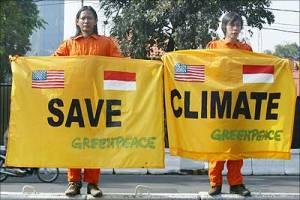Urban India is increasingly threatened by noise pollution as well. Toxic wastes, including the dangerous chemical and biomedical wastes, and equally hazardous e-waste (electronic waste), more recently, have emerged as major threats to life on our planet.
 At a time when so much public attention is focused on climate change and global warming, other equally critical environmental issues may be getting off the policy radar and public attention. For most Indians, water pollution is an even more serious threat to life.
At a time when so much public attention is focused on climate change and global warming, other equally critical environmental issues may be getting off the policy radar and public attention. For most Indians, water pollution is an even more serious threat to life.
Urban India is increasingly threatened by noise pollution as well. Toxic wastes, including the dangerous chemical and biomedical wastes, and equally hazardous e-waste (electronic waste), more recently, have emerged as major threats to life on our planet.
The ill-effects of such degradation of the earth's life-supporting means have begun to manifest in the form of heightened menace of toxicity-related illnesses and higher incidence of epidemics. Declining natural biodiversity is also a threat to human life.
Little wonder then that a recent global consumer survey, conducted jointly by Nielsen and Oxford University, has found that Indians are as much concerned about air and water pollution and growing scarcity of water as about climate change.
Against this background, the so-called 'climategate' email leaks have once again cast doubts on the seriousness of the problem. How important is climate change as a life threatening phenomenon? Scientists owe it to humanity to come forward with credible answers.
The focus of the average Indian on water and air quality, and emerging urban concern with noise pollution have quite understandably relegated concerns about climate change to the background.
Though the government recently revised air quality norms, making them as stringent as in the European Union, their effective enforcement may take years as a monitoring mechanism is yet to be rolled out. As for water, pollution is going on unabated.
Hardly 10 per cent of the waste water, including city sewage and industrial outflows, is being treated before discharging in the rivers and elsewhere.
An analysis of the water from even a 'holy river' like the Ganga has revealed that its load of highly hazardous bacteria at Varanasi is 3,000 per cent higher than what is deemed safe for bathing. The state of water quality of most other rivers is no better.
Even the Delhi high court once observed that Yamuna is a river only till it enters Delhi but becomes just a drain when it leaves the national Capital.
Underground water is turning impure and unfit for drinking because of leaching of residues of chemical fertilisers and pesticides and also due to industrial effluence being discharged into open pits from where it percolates down to subsurface aquifer.
If not checked through strict enforcement of rules pertaining to noise pollution, this too will become an epidemic of sorts.
Studies have indicated that the average quantum of noise in cities like Delhi, Kolkata, Mumbai and Chennai is far higher than 80 decibels, the level above which sound turns physically upsetting. In smaller towns, the situation can be worse.
Reckless honking and unchecked use of loudspeakers, including for religious purposes, have reduced the quality of life in urbanising India.
While greater public awareness is important, and here the media has an important role to play, the government must step in with penalties and proper policing, as well as incentives for better compliance with existing laws and norms.









